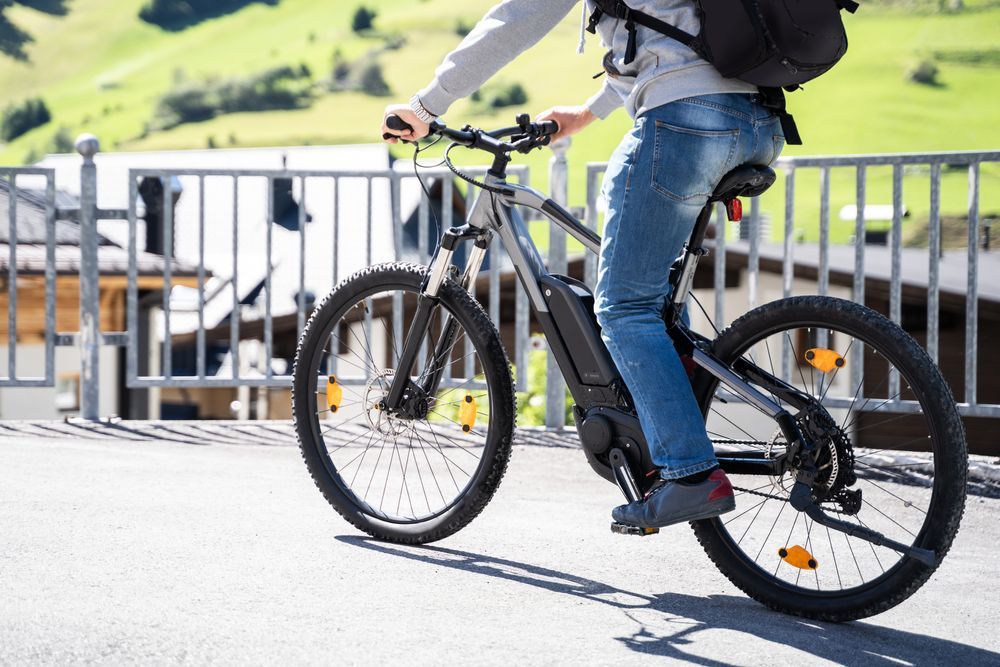E-bikes have taken the market by storm, and it's safe to say they'll be sticking around. Many people appreciate the ease of riding with a bit of help from electricity. However, there are some myths roaming around that need to be addressed. Let's debunk some of these misconceptions.
"E-bikes Don't Make You Fit"
I'm sure you've heard this sentiment at least once. Some people claim riding an e-bike isn't a form of cardio, so you can't lose weight or get fit by riding it. The truth is that you still have to apply energy on the pedals to keep the wheels spinning. The electricity only assists you to maintain a high speed. You may not have an intense workout as much as you would have had with a manual bike, but the difference is insignificant. You'll still get the same health benefits like increased oxygen in your blood, more strength and even weight loss. Some people also claim that e-bikes demand less exertion for the same distance traveled as a manual bike. This is true and, in turn, makes the rider motivated to ride for longer durations and distances. Studies have revealed that you can burn around 400-500 calories an hour. That's around 80% of what you would lose when riding a manual bike. That's not much of a difference, considering you can reduce or increase the amount of electrical help you want. E-bikes, therefore, offer flexibility and freedom to choose and manage your fitness journey.
"E-bikes Are Bulky And Heavy"
E-bikes have extra components compared to their non-assisted counterparts. However, new technology has introduced lighter and more intuitive e-bikes to the market. Some even have a foldable frame, making them easy to transport and store in your home or apartment. Old-age e-bikes were definitely heavier, clunky and a visual eye-sore. However, major international corporations are continually investing millions in the e-bike industry because the prospects are promising. If giants like these see the potential of e-bikes dominating in the future, manufacturers will be forced to come up with new, lighter and more efficient designs; we already see that happening because the current market is filled with options to suit any kind of preference and lifestyle. The Islabike eJanis and Specialized's cross-discipline Turbo range are some examples of models that are so efficient that you can't distinguish them from manual bikes.
"E-bikes Quickly Run Out Of Power"
Obviously, the more electrical assistance you use, the faster your batteries will drain. Typically an e-bike set on minimal power can take you as far as 100 miles and even more. Also, e-bikes have a display showing how much battery you have left and how far it's likely to take you. That means you won't be stranded if your bike suddenly loses juice, and you had no idea that was going to happen. Some cutting-edge technology has been introduced that uses GPS to calculate the best route to get you home fast before your e-bike runs out of power. They even show you which settings you should change to increase your chances of arriving home on time. Even if the battery runs out before you get home, e-bikes with hub motors can be manually ridden. Granted, e-bikes are heavier than manual bikes because of the extra components that make them unique, but they're manageable. Some models are super light, even less than 15kg. Also, having the ability to see the amount of power remaining will help you take control of your fitness journey.
"E-bikes Are Super Complicated"
Sure, there are some added components you won't see on a regular bike, like a motor, battery and dashboard. However, e-bikes are just bikes and the features added to them use simple engineering tech that has been around for many years. Some people even perceive manual mountain bikes as complicated because you have to change gears, adjust brakes and fix punctures from time to time. Most e-bikes are designed to be simple and easy to use. If you can navigate this modern world and its current technology, you will fair well with an e-bike. However, there are e-bikes in the market that are indeed complicated, but those are designed for enthusiasts who appreciate and want such complexities. Some examples include Bosch Nyon, Mahle e-bikemotion and Shimano STEPs.
"Riding An E-bike is Cheating"
The question we should be asking is cheating on what? If you plan to compete in cycling competitions with an e-bike against manual bike competitors, that's definitely cheating. However, many people who are interested in e-bikes aren't professional cyclists. E-bikes simply offer more convenience, accessibility and options for people who want to take control of how they commute or exercise. Many people choose e-bikes for commuting because of the health benefits they offer, like losing weight, increasing blood flow in the body, reducing the risk of developing chronic illnesses, and feeling good about themselves. If you would rather sit through a two-hour commute to work or sit in front of the TV the entire day, then you're the one who's cheating yourself!
"E-bikes Are Meant For The Elderly"
A recent survey by YouGov, which involved a group of 13,000 Europeans from several countries, revealed that 8% of all the participants owned e-bikes. 17% showed interest in purchasing an e-bike the following year. 11% said that they don't ride manual bikes alone. When we compare the results by country, 30% of Italians showed interest in riding an e-bike. 26% were Swiss, Dutch and Polish. 21% were people in Spain, and 19% were from France. UK people formed 7%, showing the least interest in e-bikes. This survey also revealed that younger people were more excited to be shown how to use an e-bike. This shows that the advertising campaigns should no longer be geared to the older generation in the name of offering more mobility. The survey proved that advertisers are missing out on an opportunity to serve a demographic which is not only interested in staying healthy and saving the planet, but also conversant with technology and it’s power to change lives.
"E-bikes Are A Modern Invention"
Almost everyone falls for this myth. The truth is, e-bikes have been around since the 1900s, but they weren't mainstream, and other modes of transportation stole the spotlight from them. Now, because of the current need for more eco-conscious and healthy living methods, e-bikes are getting their moment of recognition and we're excited about it.
One thing that isn't a myth is that e-bikes are a fun, healthy and exciting way of taking care of our planet. If you're interested in trying one, go ahead and purchase it. You won't regret it.



